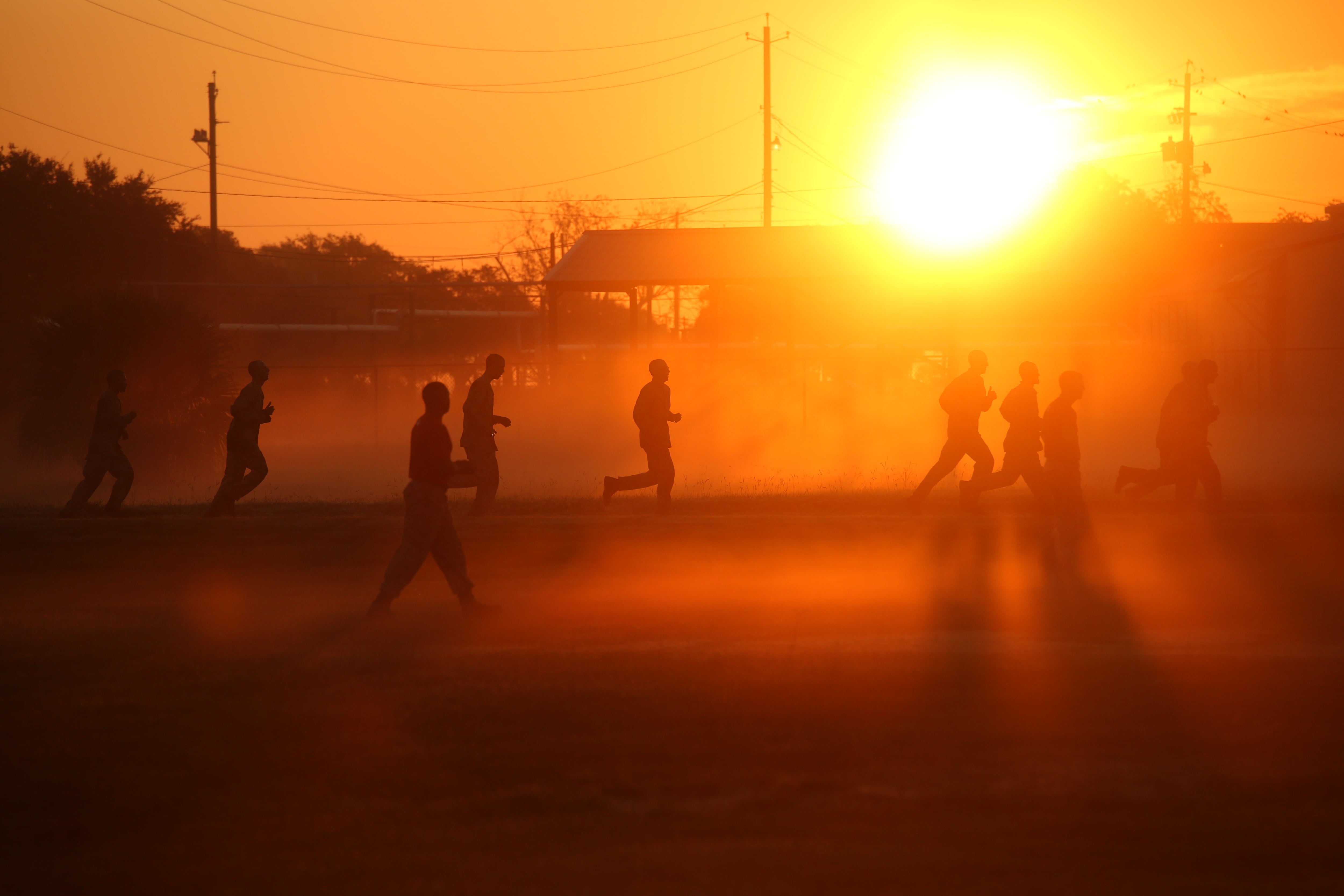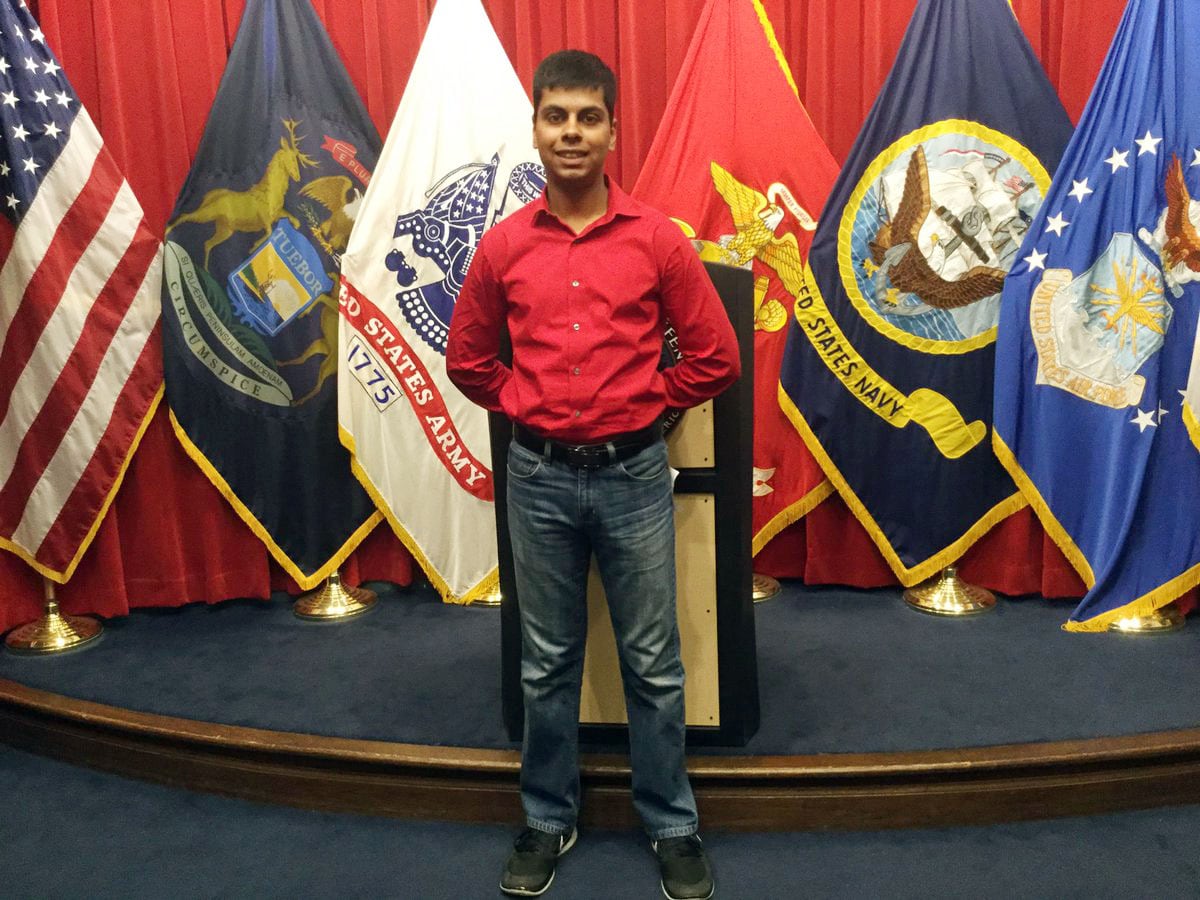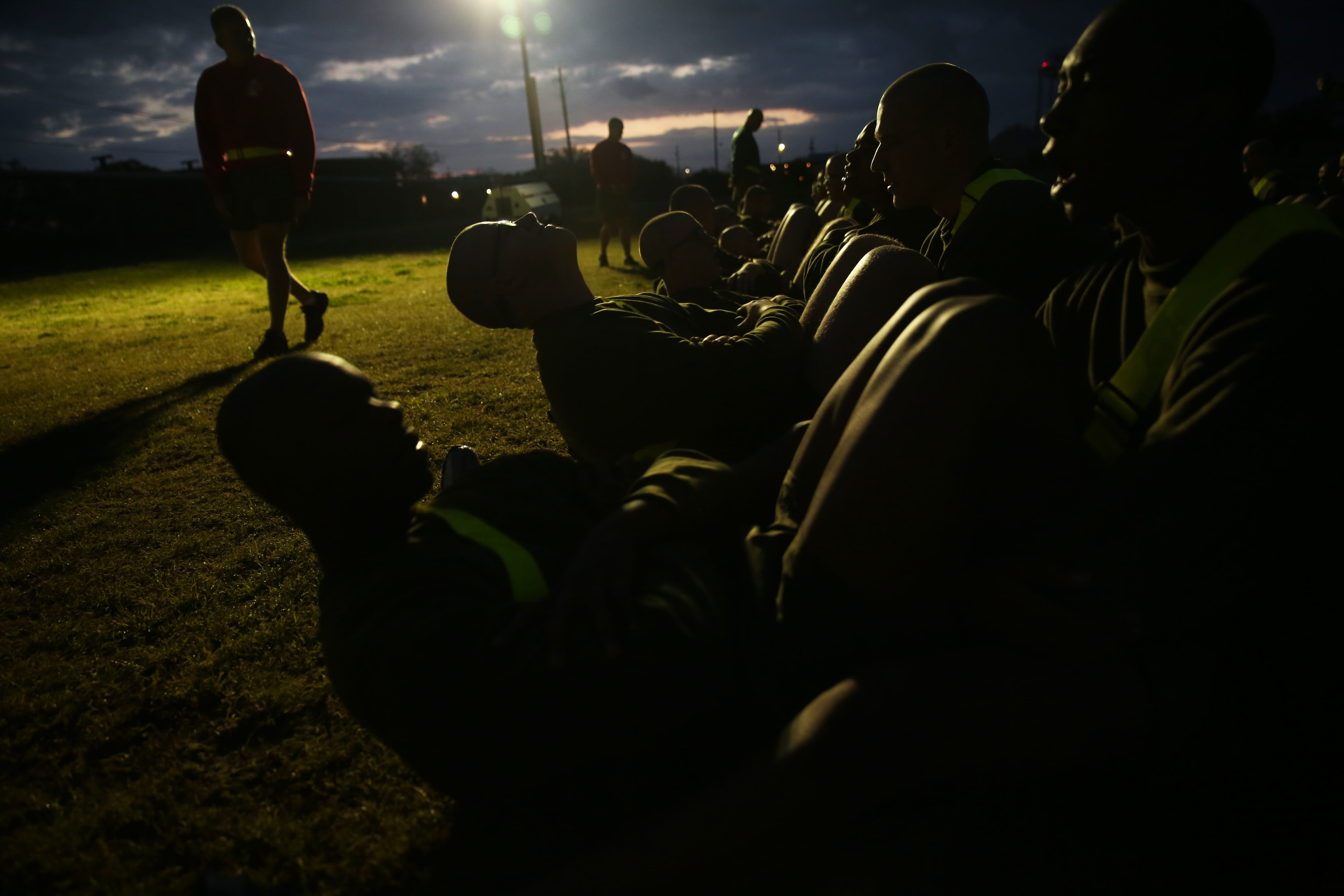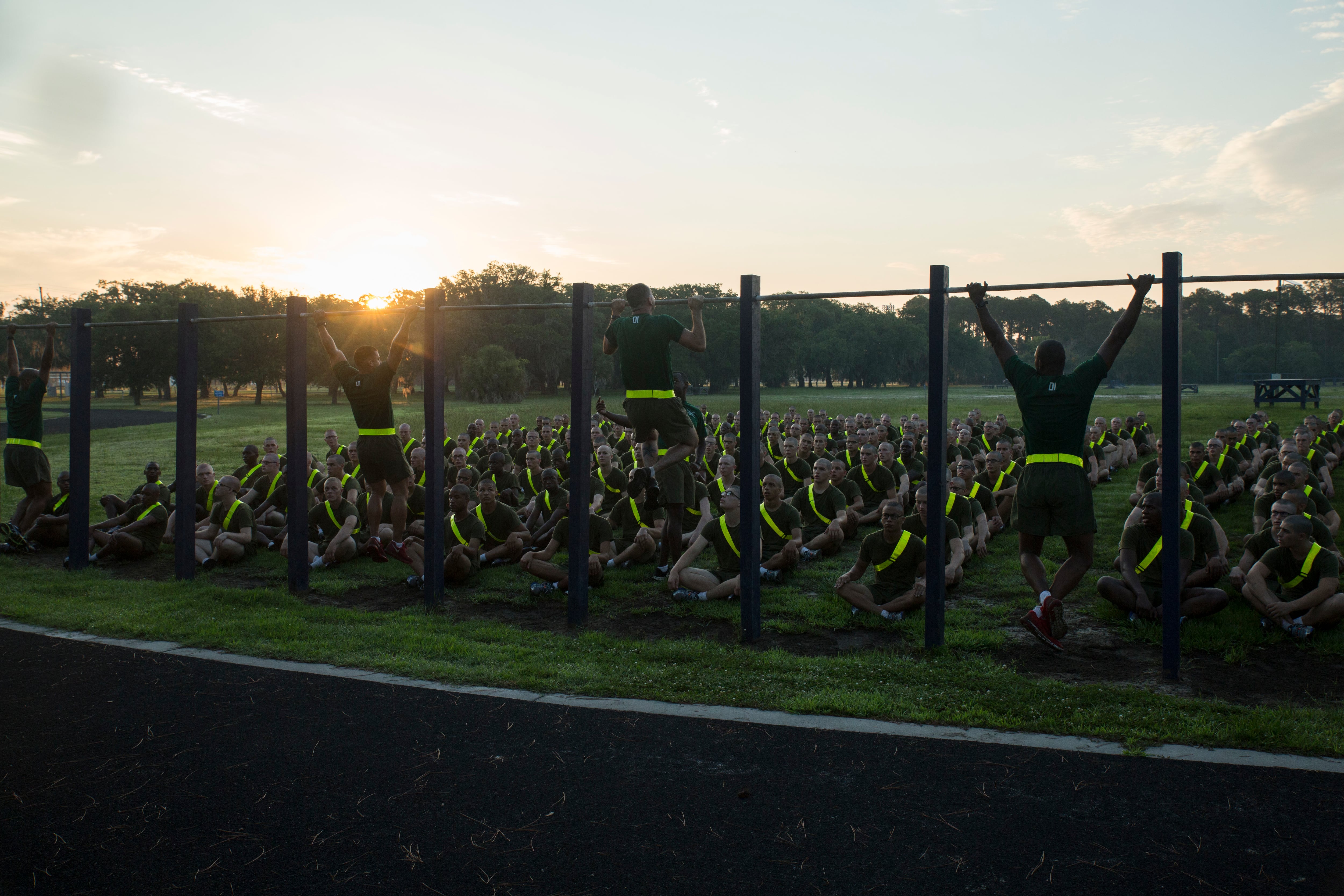Multiple investigations into the death of a Muslim military recruit at the Marine Corps' fabled Parris Island training center have uncovered a troubling pattern of mistreatment, and officials are responding with a series of policy changes designed to improve accountability and prevent future missteps.
Twenty Marines are facing administrative punishment or potentially more consequential legal proceedings, a military official told Marine Corps Times. Two investigations into allegations of hazing were already ongoing in March when Raheel Siddiqui, 20, fell nearly 40 feet to his death from a barracks stairwell just days after arriving at Parris Island, which is located along the South Carolina coast. A third investigation was launched into his death.
The incident has prompted questions about the way recruits are treated and disciplined as they train to become Marines – especially minority recruits. One congresswoman has spent months pressing top Marine leaders to prove that Siddiqui’s Muslim faith did not lead to any mistreatment during his time at Parris Island. It followed years of immense pressure from members of Congress about how military leaders are tackling the issue of
hazing
in the ranks.
The problem is very real. The Marine Corps investigated 377 alleged hazing incidents between January 2012 and June 2015, substantiating about a third of the cases. The data was obtained by Marine Corps Times through a Freedom of Information Act request.
Investigators determined that one of Siddiqui's drill instructors had been accused of hazing and assaulting a Muslim recruit the year prior, according to the official, who spoke on the condition of anonymity because he was not authorized to discuss the investigation before its public release. "While under the influence of alcohol, [the drill instructor] ordered a Muslim recruit to get inside a commercial clothes dryer and then turned the dryer on several times while commenting on the recruit’s religion," the official said.

A series of changes will be made to Marine boot camp after a drill instructor under investigation for hazing was allowed to lead another platoon of recruits.
Photo Credit: Cpl. Caitlin Brink/Marine Corps
A new policy change will prohibit any Marine from continuing to train recruits if he or she is under investigation. Perhaps more significant, though, is the end of the age-old practice of assigning drill instructors to specific billets based on their time at recruit depots. With the exception of the senior drill instructor billet, the Marine Corps is ceasing "any practice that is based on differentiating between drill instructors of differing experience levels," officials said.
The policy changes are effective immediately and will apply to Parris Island and the Marine Corps' West Coast recruit training facility in San Diego.
Though Siddiqui's autopsy concluded that his "manner of death is best deemed suicide," the official said, investigators found evidence of systematic hazing and abuse allegedly committed by personnel who run the facility. There was also a "noted absence of oversight and supervision at various levels of command," the official added.
"We mourn the loss of Recruit Siddiqui," Marine Corps Commandant Gen. Robert Neller said in a written statement released to Marine Corps Times, "and we will take every step necessary to prevent tragic events like this from happening again."
'Inconsistent processes and procedures'
Siddiqui, a Pakistani-American from Michigan, arrived at Parris Island on March 7. Six days later, he told his drill instructors that he wanted to kill himself but later changed his mind, according to Marine officials.
Over the next 24 hours, Siddiqui was monitored before being interviewed and examined by military medical personnel. First, he first spoke with someone from Parris Island's Recruiter Liaison Service, which falls under Marine Corps Recruiting Command. Next, he was examined by a psychologist at the facility's mental health unit, which falls under the Navy Bureau of Medicine and Surgery.
After those examinations, it was recommended that Siddiqui "return to training," the official said.

Raheel Siddiqui, 20, died on March 18 while at Marine Recruit Depot Parris Island, S.C.
Photo Credit: Facebook
On March 18, four days after Siddiqui returned to training, he wrote a note to his drill instructor requesting medical attention for a sore throat. After breakfast, a drill instructor summoned the recruit to the front of the squad bay. Siddiqui was forced to run to one end of the squad bay and back several times before he fell crying to the floor while clutching his throat, the Marine official said.
When he appeared unresponsive, the drill instructor "verbally ordered" Siddiqui to get back to his feet before "forcefully slapping" him in the face, the official said. The Marine Corps' Recruit Training Order prohibits drill instructors from striking recruits.
After the slap, Siddiqui got to his feet and ran the length of his third-floor squad bay to the stairwell outside and vaulted over the railing. He was pronounced dead several hours later at the Medical University of South Carolina. According to the autopsy, Siddiqui suffered "blunt-force trauma to the head, neck and torso."
Investigators' questions remain about whether Siddiqui was examined thoroughly enough before being sent back to train just a day after threatening suicide. The investigation found "anomalies in the manner in which [his] threat of suicide was handled in part due to inconsistent processes and procedures," the Marine official said.
Hazing, physical mistreatment
Apart from the congressional inquiry, Siddiqui's death sparked a series of firings and suspensions at Parris Island, where each year nearly 20,000 young men and women train to become full-fledged Marines.
Investigators found that the procedures for recording abuse allegations were unclear, and that commanders were unaware of their roles within the investigative process. Siddiqui's recruit training company in particular suffered from "inadequate supervision by leadership ... which resulted in a permissive atmosphere for hazing and abuse to occur," the official said.

With the exception of the senior drill instructor billet, the Marine Corps will no longer will no longer assign DIs to specific billets based on their time at recruit depots. The change is the result of an investigation into a recruit's death that found that some more seasoned drill instructors were mistreating their juniors.
Photo Credit: Cpl. Octavia Davis/Marine Corps
Not even the drill instructors were immune from the bad treatment. Referred to as "hat hazing," investigators found that some of the more seasoned drill instructors within Parris Island's 3rd Recruit Training Battalion were mistreating the junior Marines in their platoons.
Now the Marine Corps will no longer assign drill instructors to specific billets –
known as "heavy hats," "knowledge hats" and "fourth hats" – based on their experience levels.
To date, the Marine Corps has publicly identified two leaders who were fired as a result of the Siddiqui investigations: Col. Paul Cucinotta, commander of the Recruit Training Regiment; and Sgt. Maj. Nicholas Deabreu, the training regiment’s senior enlisted leader. Both were relieved of duty June 6.
Brig. Gen. Terry Williams, Parris’ Island commanding general when Siddiqui was there, was initially slated to take a prestigious assignment leading logistics Marines deployed throughout the Asia-Pacific regions. Instead, he was moved into a job at the Pentagon for reasons that have not been made clear.
Lt. Col. Joshua Kissoon, the 3rd Recruit Training Battalion's commanding officer, was fired on March 31 over misconduct allegations. A spokesman for Parris Island has stressed that Kissoon's relief was not related to Siddiqui’s death.
Parris Island's new commander, Brig. Gen. Austin Renforth, took command of the facilityin June. A career infantry officer, he has pledged that Marines in his charge will "follow the rules" and "do things right."
Fixing the depots
Maj. Gen. James Lukeman, head of the Marine Corps' Training and Education Command, has taken actions "to prevent the recurrence of issues identified in the investigations," said Maj. Christian Devine, a Marine spokesman at the Pentagon. The new measures include:
– An increased officer presence and supervision of training.
– The mandatory suspension of any Marine who's being investigated for recruit abuse, hazing or maltreatment.
– Better visibility and reviews of investigations above the regimental level.
– The modification of the assignment processes for drill instructors and officers.
– The cessation of any practice that is based on differentiating between drill instructors of differing experience levels, to include enforcing a zero-tolerance policy for "hat-hazing" or hazing of any kind among drill instructors.
– A review and possible revisions to mental health processes and procedures, to include suicide prevention protocols.
These measures are necessary for the service, as the Corps must promise to take care of the men and women who want to become Marines, said Neller, the service's top general. "We pledge to train them with firmness, fairness, dignity and compassion," the commandant said. "Simply stated, the manner in which we make Marines is as important as the finished product."

Drill instructors demonstrate proper pullups to new recruits at Marine Corps Recruit Depot Parris Island, S.C.
Photo Credit: Cpl. Vanessa Austin/Marine Corps
But that doesn't mean the service's rigorous standards will soften, he added. "Recruit training is, and will remain, physically and mentally challenging so that we can produce disciplined, ethical, basically-trained Marines," Neller said.
Discipline versus hazing
Drill instructors must strike a careful balance between the intense, and often in-your-face, interactions they have with recruits while they're transforming young civilians into Marines. Some of the measures DIs use to train recruits who misbehave meet the definition of hazing in other settings. But these special tactics are tolerated only at the recruit depots. They're banned everywhere else.
Before Marines are allowed to train recruits, they must first complete more than 500 hours of instruction during the 11-week course at service's Drill Instructor School, said Capt. Gregory Carroll, a Parris Island spokesman. Those Marines are taught the Drill Instructor Pledge, which is recited before each training cycle. Marines must vow to demonstrate by example, displaying "the highest standards of personal conduct, morality and professional skill."
Senior drill instructors also recite a speech in front of every group of recruits that steps onto the yellow footprints at the recruit depot, Carroll said. In that speech, all recruits are given the service's definition of hazing, and they're taught that it's not something that's tolerated at the depots.
"If anyone should abuse or mistreat you, I expect you to report such incidents immediately to me or one of my drill instructors," the recruits are told. "Furthermore, if you feel that I have mistreated you, I expect you report the incident immediately to your series commander."
Still, hazing at boot camp has long been a concern for the Marine Corps. Decades ago, an intoxicated staff sergeant led more than 70 recruits to a swampy tidal creek around midnight aboard Parris Island. The DI jumped into the creek, ordering his recruits to follow him into deep waters. Several of the recruits couldn't swim, though, and six young men died that night.
The Marine Corps' order on hazing was last updated in 2013. Over the last few years, several drill instructors accused of hazing in have been sent to courts-martial.
In 2012, for instance, a drill instructor in San Diego faced a three-day trial after he was accused of mistreating recruits. Prosecutors accused the staff sergeant of forcing recruits who'd been sidelined with stress fractures to stand for long periods of time and ordering another recruit who had repeatedly vomited to pick up the mess with his bare hands and then mop the floor — all while maintaining a salute. He allegedly made another recruit drink hot water and forced one on limited duty with knee inflammation to carry 10 heavy duffel bags across the squad bay for hours after lights out.
That same year, a sergeant at Parris Island faced a court-martial after he was accused of ordering 70 recruits into the showers where he made them run in place while he allegedly thickened the air by dumping bleach down the drains. Another DI in that training battalion was accused of pouring bleach near a recruit, who ended up with skin burns on his legs and buttocks.
The drill instructor at San Diego was not punished. The drill instructor who poured the bleach in the showers at Parris Island was forced out of the Marine Corps.
Stopping abuse
So far, Marine Corps officials have not said whether Siddiqui was hazed or abused because he was a Muslim. His family’s attorney told the Detroit Free Press they are concerned "his religion could have played a major role" in how drill instructors treated him.
The Siddiqui family’s congresswoman, Rep. Debbie Dingell, has been pressing the Marine Corps for months about what role hazing may have played in Siddiqui’s death. In a June letter to Neller, the Michigan Democrat wrote that she was deeply disturbed by a report from The Wall Street Journal about the Muslim recruit being ordered to get into the dryer in 2015.
"How do we ensure that all recruits are treated equally and receive the proper training to be effective at their jobs ... without resorting to tough and discriminatory tactics that could put someone's life at risk," she wrote.
Dingell has co-sponsored a bill that would require the military services to conduct annual surveys asking troops about the prevalence of hazing and report back to Congress each year about what steps they are taking to solve the problem. The Harry Lew Military Hazing Accountability and Prevention Act is named for Lance Cpl. Harry Lew, who took his own life five years ago after being hazed for falling asleep while on guard duty in Afghanistan.
Lew’s aunt, Rep. Judy Chu, is the bill's prime sponsor. It's included in the House version of the Fiscal 2017 National Defense Authorization Act, which must be passed by both chambers of Congress. Chu has been an outspoken advocate of eliminating hazing in the military since her nephew’s suicide.
"I was devastated when I heard what happened; I could not imagine that he would have been tortured so much that he would end up taking his own life," Chu told Marine Corps Times. "I feel obliged to his memory, to make sure his death is remembered and amounted to something: If we're able to eradicate hazing in the military, that certainly would at least be some comfort."
Legal experts say it can be difficult to properly identify and punish acts of abuse.
"Hazing takes many forms: some cases are simple and others complex," said Zachary Spilman, a military law expert and lead contributor to the military justice blog CAAFlog. "Punishment is an equally difficult topic, as the background and service record of the accused are important considerations to be balanced against the seriousness of the incident."
Chu said she understands the need for leaders to discipline troops, but punishment should not be violent.
"When it becomes torture, when there is violence, as in the case of my nephew — kicking, punching, stomping, smothering — I would say they've crossed the line," she said.
Staff writer Matthew L. Schehl contributed to this report.





